October 31, 2025
How many of us know, what is the mother-tongue of Jesus Christ?
Most of us, myself included, may not have known this simple fact even though it is common knowledge that Christianity owes its existence to Christ. We know India’s ‘father of the nation,’ Mahatma Gandhi or well-known black leader Martin Luther King and numerous other leaders were inspired by Christ and his teachings fostering love, peace, universal brotherhood, upliftment of the poor and helpless, non-violence among many other things.
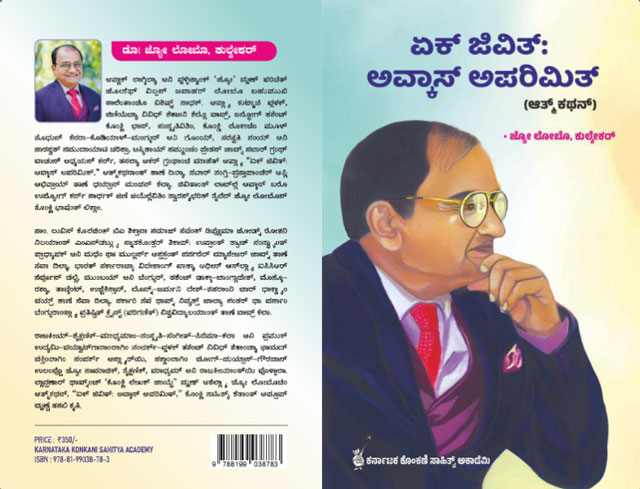
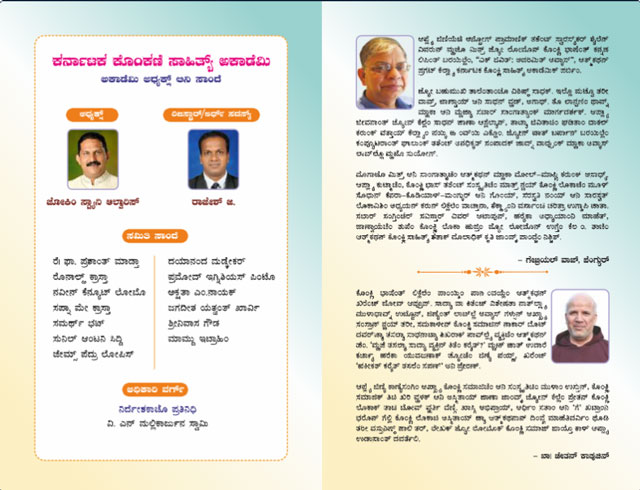
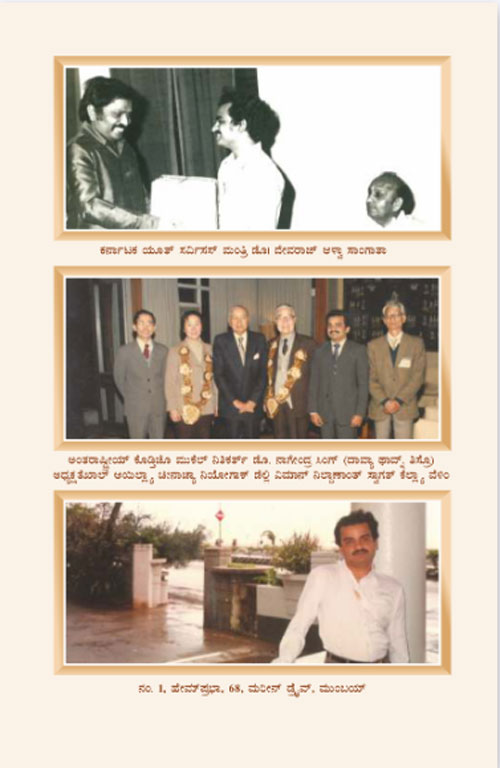
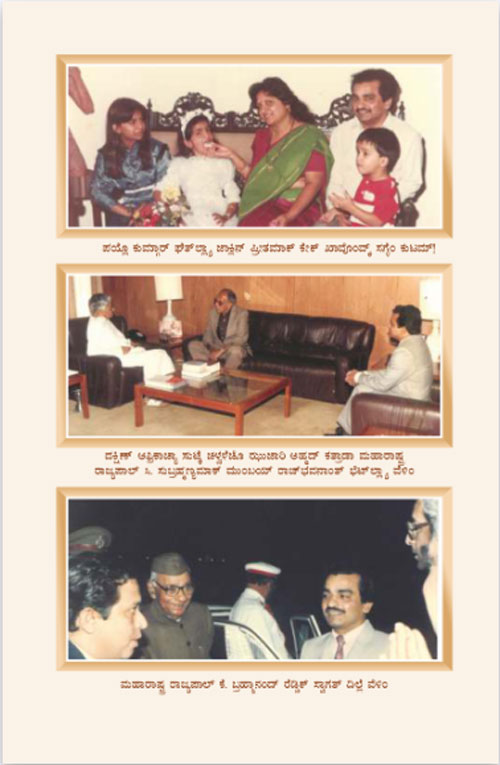
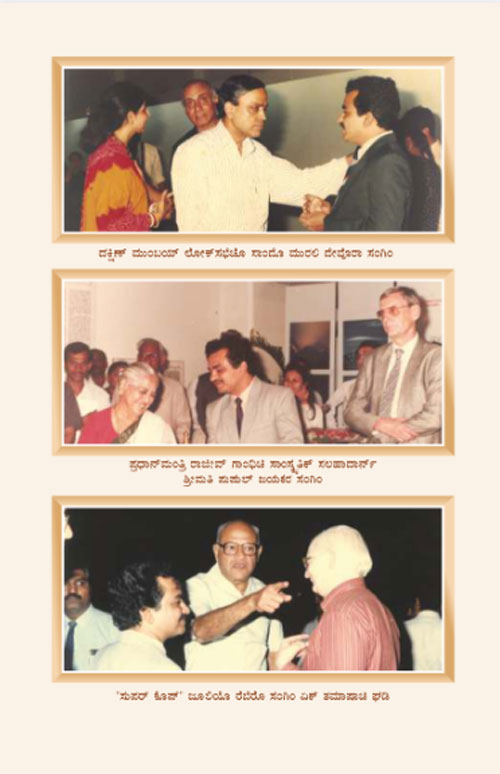
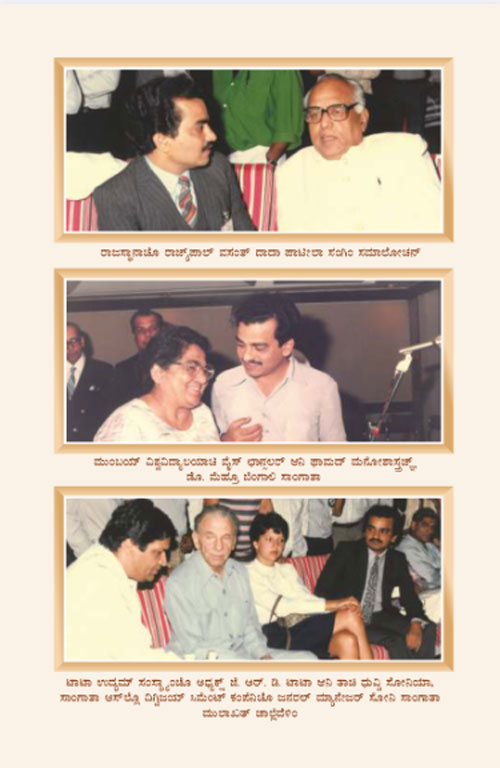
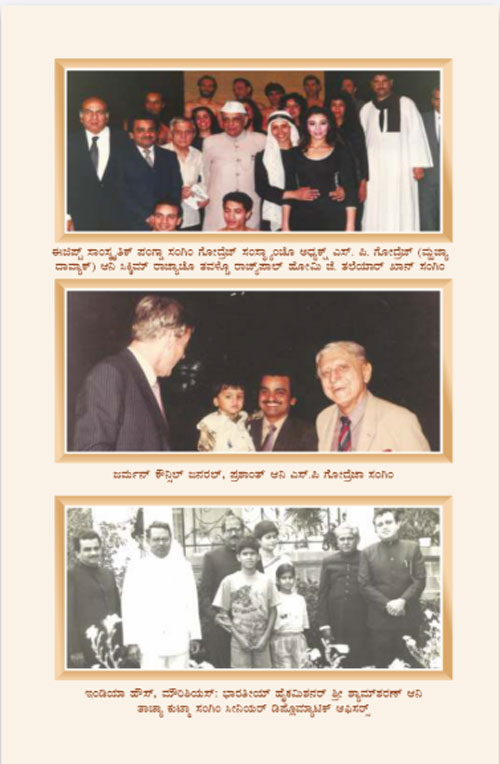
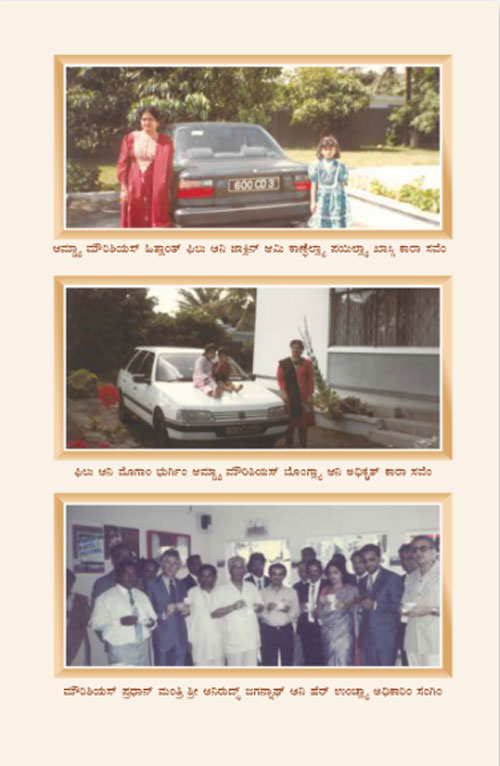
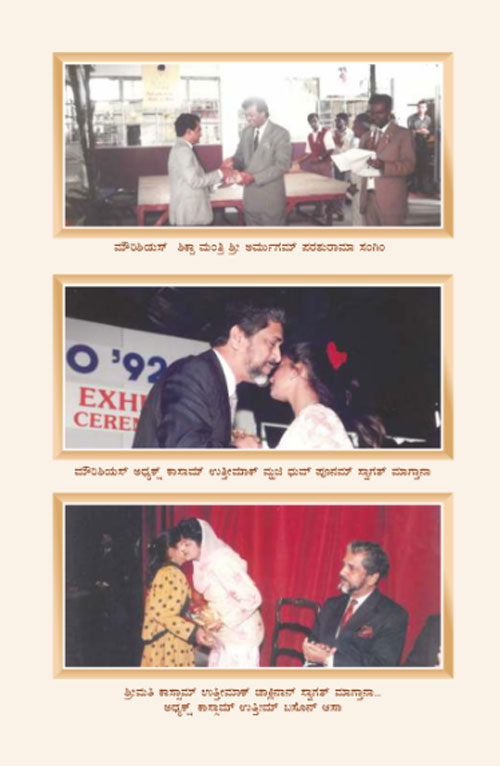
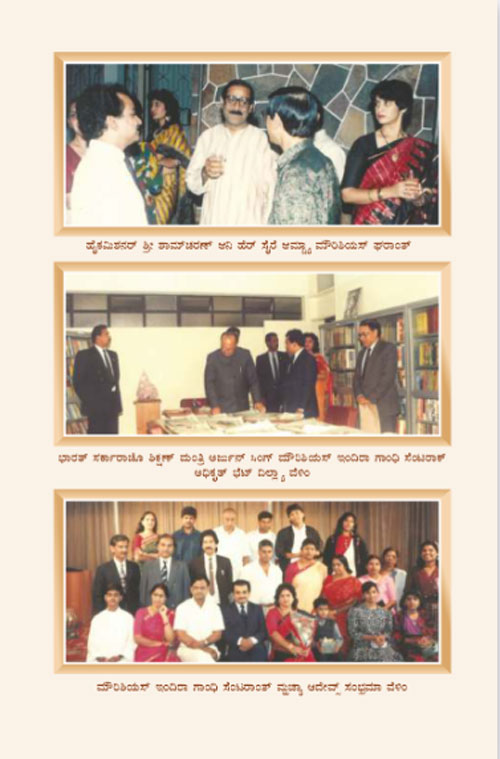
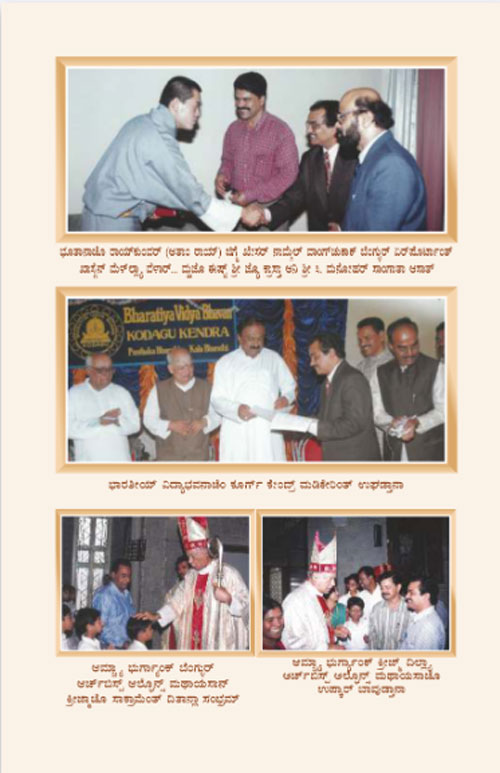
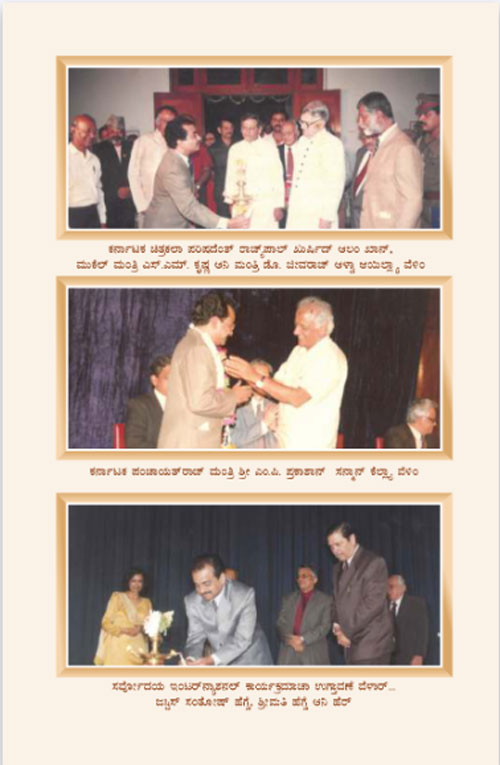
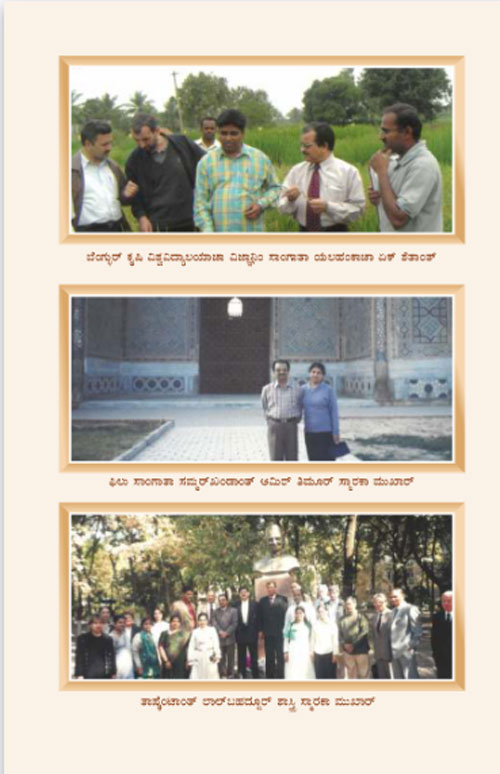
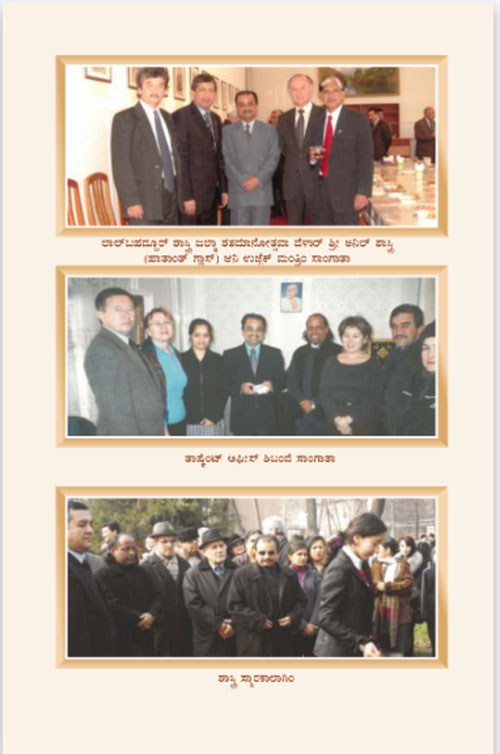
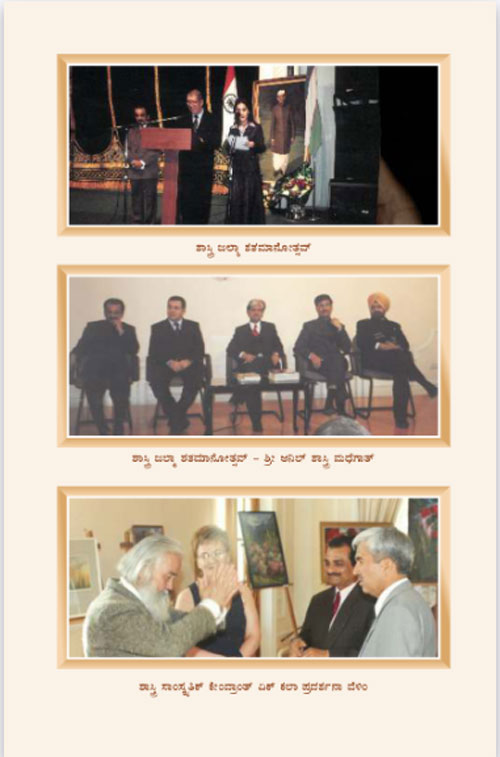
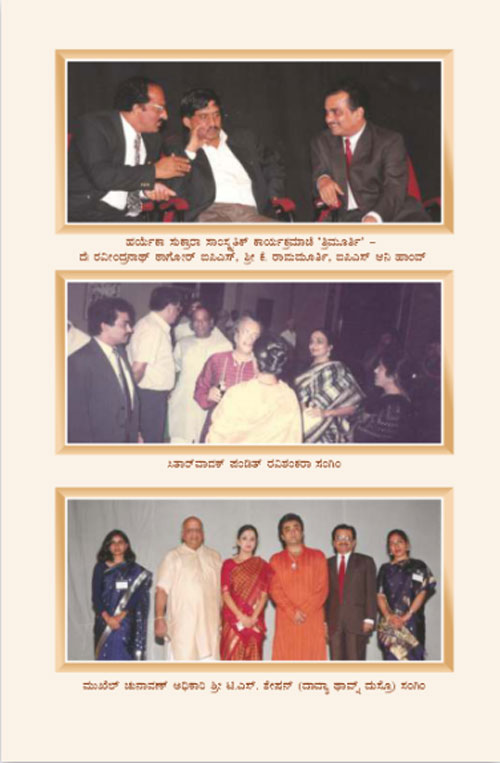
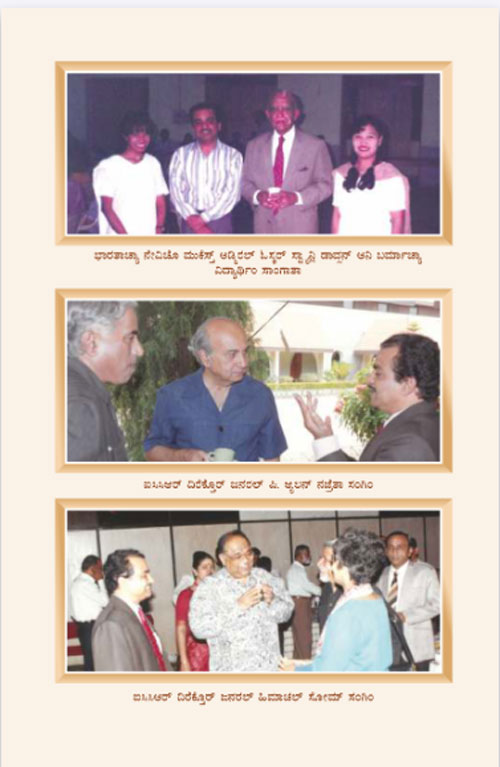
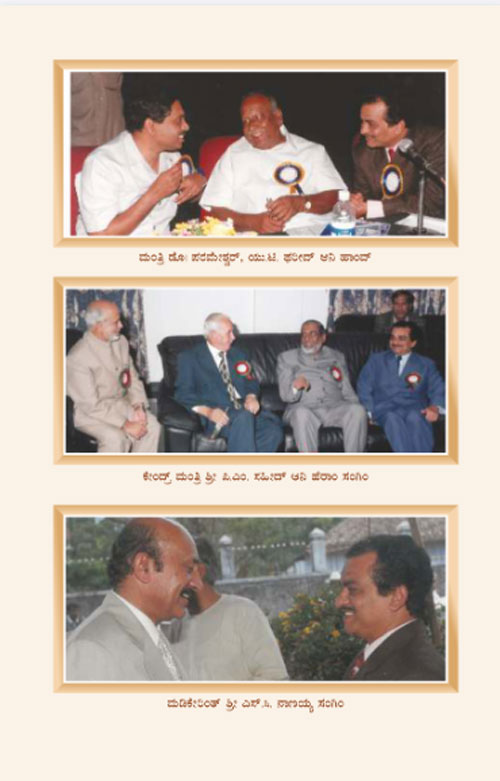
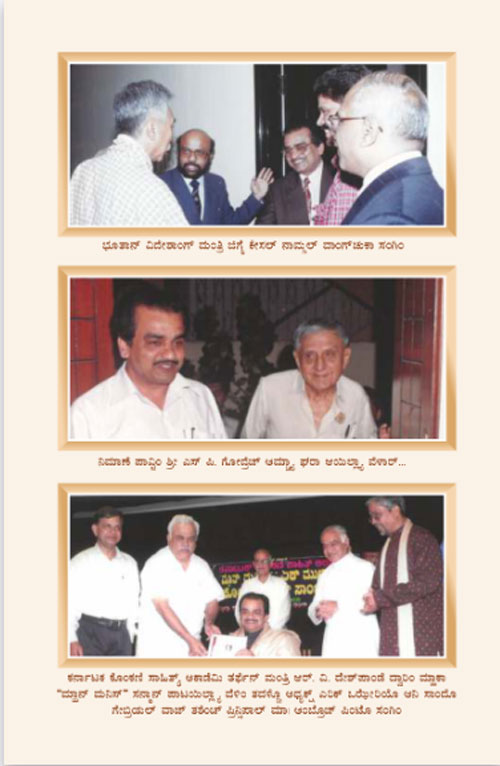
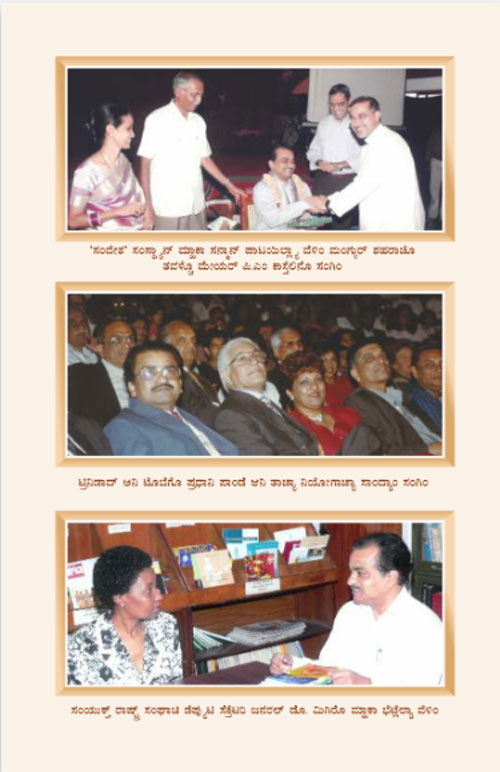
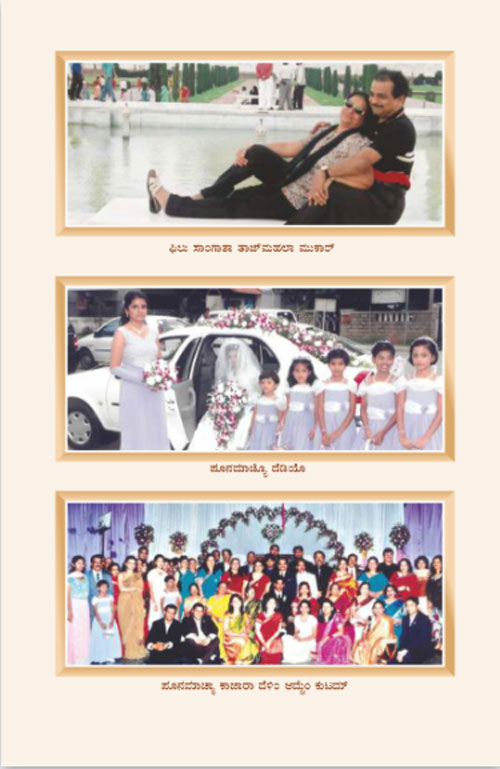
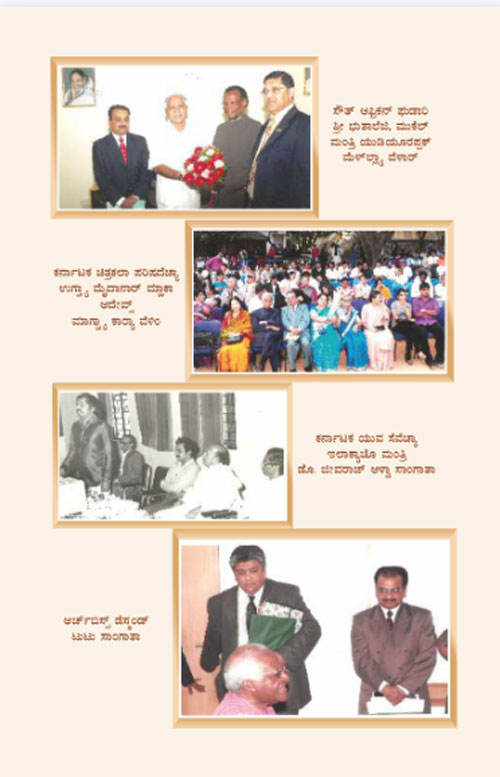
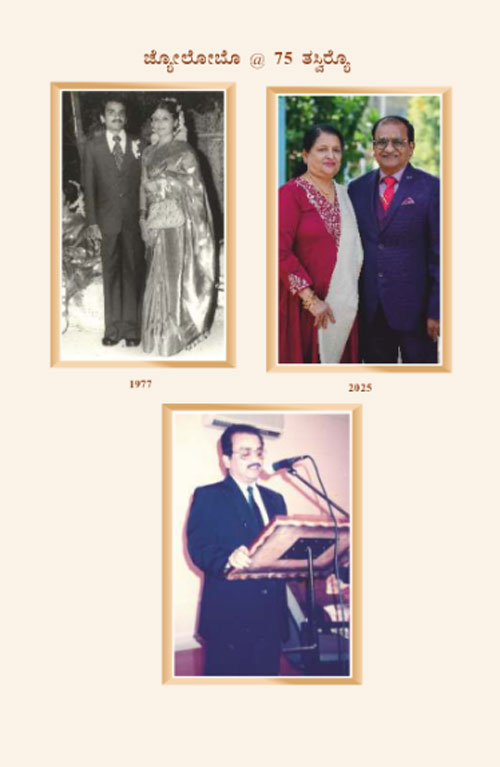
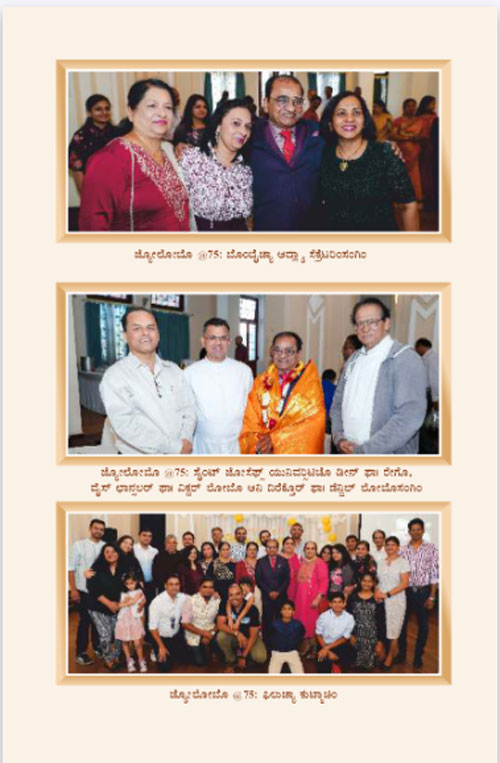
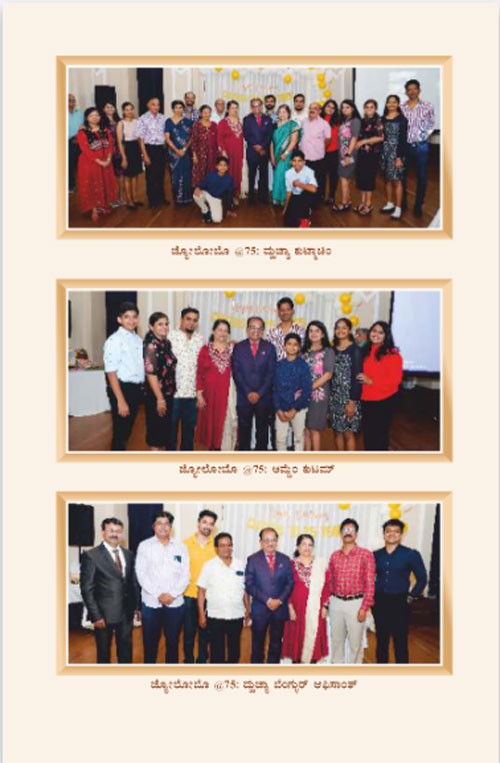
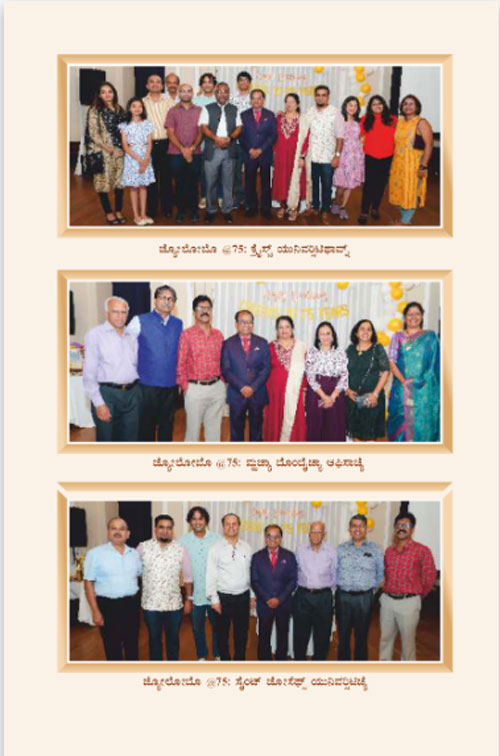
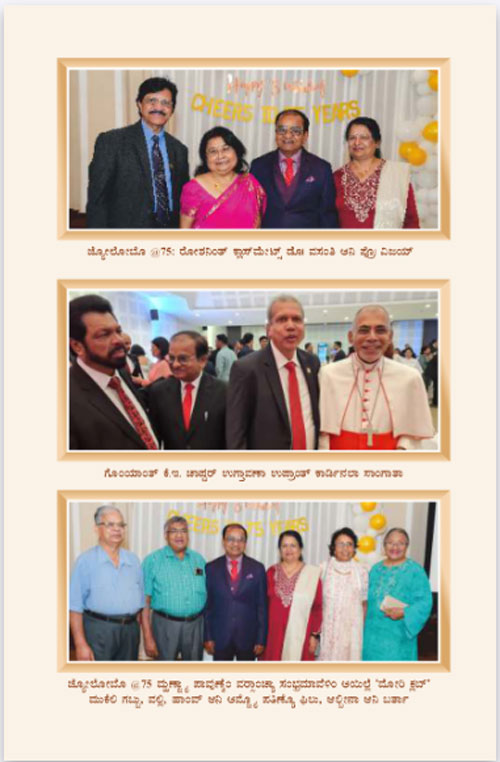
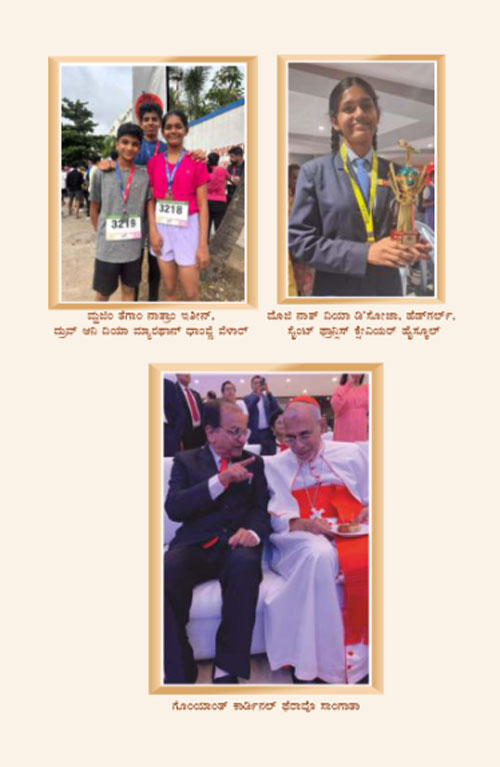
Coming back to the question of Christ’s mother-tongue, most of us must have presumed that Christ must have been speaking Hebrew by virtue of being a Jew. But did most of us know, without googling or seeking the help of other authoritative sources, that Christ’s mother-tongue was Aramaic?
And surprisingly, did we known on our own that Emperor Ashoka, who hails from the famed Maurya dynasty and ruled over ancient India in the 3rd century BC (years 304 and 232), was probably proficient in Aramaic and even his subjects – the ordinary people of ancient India – were obviously well-versed in Aramaic because Samrat Ashoka had his edicts engraved in Aramaic language in stone as evidenced by the archaeological discoveries in the Gandhara region.
These and several other startling and little known facts have been narrated in the voluminous Konkani autobiography, “Ek Jivit, Avkas Aparimit” (One Life, Innumerous Opportunities) written by Joe Lobo of Kulshekar in the Kannada script, which has been published by the Karnataka Kokani Sahitya Academy.
The huge volume running over 550 pages including some rare photographs was released by Prof Valerian Rodrigues, eminent scholar and former Professor of Jawaharlal Nehru University, New Delhi, along with the founder of Daijiworld media undertaking, Walter D’Souza, Nandalike, in the presence of Academy Chairman Stany Joachim Alvares and Anil Lobo, Chairman of MCC Bank Ltd.
Simple Style, Authentic Information
The author of Konkani autobiography in Kannada script, “Ek Jivit, Avkas Aparimit,” Joseph Wilson Jawahar Lobo or Joe Lobo, Kulshekar, as he is known to all his friends and vast circle of acquaintances, had undertaken the stupendous task of writing about his own life, the background and history of his family and ancestors as also the origin of Konkani language, its vast heritage and the identity of the Konkani people interlinking everything in an interesting narrative.
The simple style with lots of authentic information culled from a large repertoire of authoritative books, journals and encyclopedias, which is a standing testimony for his voracious reading and impressive recollection of the memories.
Among the 22 languages included in the 8th Schedule of Indian Constitution, Konkani is rich in diverse forms of literature and has a proud legacy of culture, folklore, theatre, drama and so son. It is written in five different scripts – Kannada, Nagari, Romi, Malayalam and Arabic – by people of different faiths such as Christians, Hindus (Saraswaths) and Muslims (Navayats). It is spoken in 32 different styles or Bolis as per records. It is the official language of Goa and Konkani people are spread in different states like Karnataka, Goa, Maharashtra, Kerala, Gujarat, Delhi etc., and the Konkani people are thriving in almost all countries like the US, UK, Canada, Australia, Germany, Middle-East etc.
Konkani literature has a rich and diverse legacy with Kannada script accounting for probably the largest volume followed by Nagari and Romi. Konkani written in Kannada script is known to have the bulk of literature particularly in the genre of short stories, novels, poetry, hymns, songs, religious texts etc., the language sadly does not possess sufficient science literature and authentic historical books, travelogues or travel writing, literary criticism and also biographical or autobiographical works.
The autobiography written by Joe Lobo in Konkani in Kannada script is a small attempt to fill up the gap to some extent, which may surely be welcomed and appreciated by all Konkani speaking people. It certainly is a sort of challenge to a large number of more accomplished Konkani stalwarts in different walks of life to take time to pen their memoirs, autobiographies or at least seek the help of their trusted writer friends to put in words their biographies, which would surely serve as an inspiration to all aspiring youth.
Interesting Student Life
The details of the student and college life must surely revive memories of the youth barely a few decades ago, when life was devoid of luxuries such as piles of pocket money, smart phones and other gadgets as also fancy two-wheelers and even swanky cars that most of the present day youngsters are blessed with.
Though the autobiography is a bit long, it reads well with several humorous anecdotes in the author’s life from his childhood and as a student in St Joseph’s Higher Primary School in Kulshekar, the high school days in Padua High School, Nanthoor, college life in St Aloysius College, Mangalore and later post-graduate studies at Roshni Nilaya, Mangalore.
A dynamic, multi-faceted and multifarious personality, Joe Lobo had shown his leadership talents and qualities from a young age and became a president of Catholic Youth Movement (CYM), which has since been renamed as Indian Catholic Youth Movement (ICYM) of the undivided Mangalore Diocese at an young age of 20 besides serving as the President of the CYM unit of the Holy Cross Church, Cordel, Mangaluru.
Student, Lecturer at Roshni Nilaya
Keen on becoming a scientist or at least a lawyer, Joe Lobo did his graduation in St Aloysius College, Mangalore and had the distinction of becoming a rank-holder while studying in BA and also simultaneously did his Diploma studies in Social Work from the prestigious Indian Institute of Social Service, Pune, Maharashtra. He did his post-graduation at Roshni Nilaya and was chosen as Lecturer even before the results of his MSW final exams were out.
Joe Lobo was chosen to serve on deputation even while being employed as Lecturer at Roshni Nilaya as Personnel Manager of Father Muller’s Hospital, when it was embroiled in serious labour unrest and helped in restoring peace and harmony in the institution.
Distinguished Career in ICCR
In the present context where securing jobs involves huge bribes and influence peddling, Joe Lobo was so fortunate to be selected to serve in the Indian Council of Cultural Relations (ICCR), which comes under the Government of India’s Ministry of External Affairs, on his own merit.
Joe Lobo was posted in Delhi, Bengaluru and Mumbai besides serving in several other countries and cities during his long illustrious career. He was involved in the organisation of SAARC summit in Bangladesh’s Dacca. He had served in Uzbekistan and Tashkent. He was immersed in the organisation of India Festival in Bonn in Germany and also the USSR Festival held in Mumbai. He had an interesting stint in Mauritius, where he was part of the organisation of World Hindi and Marathi conferences.
During his long career in ICCR, Joe Lobo had the privilege of closely interacting with such stalwarts and senior government bureaucrats such as Lalit Mann Singh, A P Venkateshwaran, J N Dixit, Alan Nazareth, T N Sheshan, Himachal Som, Praful Jayakar as well as our own George Fernandes, Congress leader Anil Sastry (son of late Prime Minister Lal Bahadur Sastry), Governors Dr Shankar Dayal Sharma, C Subramaniam, K Brahmananda Reddy and captains of Indian industry such as S P Godrej, J R D Tata. He was deeply involved with South African leaders such Ahmed Katrada, Archbishop Desmond Tutu and film artists like Shyam Benegal, musicians Pandit Ravi Shankar, J S Mani and several others.
However, Joe Lobo has always been a simple and loving person, who used to treat everyone with the same warmth and cordiality be they highly educated, rich and influential. He never distinguished between big and small and any other kind of class distinctions, including his old friends and neighbours.
Forays in Politics
With his vast knowledge and keen interest in political life, Joe Lobo narrates his forays in politics for a brief period and even serving as a Dakshina Kannada district-level Neta pally with the likes of such stalwarts as Shankar Alva, B Janardhana Poojary, B Subbaiah Shetty, B M Ibrahim, U T Fareed father of the present Speaker of the State Assembly U T Khader, Blasius M D’Souza, P F Rodrigues besides former chief ministers R Gundu Rao and S M Krishna, Dr Jeevaraj Alva, M P Prakash and many others.
An avid reader, Joe Lobo dabbled in the media field too by serving as the Editor of “Bhavadti Yuvak,” the journal of CYM and a publisher cum editor of his own Kannada fortnightly, “Roshani,” besides writing in Konkani as he had starry dreams of a big and celebrated Konkani writer himself. He has contributed articles to Raknno and other journals too.
Even after his retirement from government service, Joe Lobo had the distinction and rare privilege of working as Director International Relations at the prestigious CHRIST (Deemed) University in Bengaluru for 10 long years. He is deeply involved in several Konkani organisations, language and culture.
The autobiography has detailed accounts of Joe Lobo’s life and is a compendium of several little known facts about Konkani language and people.
PRICED Rs 350, the book is available at:
- Karnataka Konkani Sahitya Academy, Lalbagh, Mangaluru
- Jerosa Company, Hampankatta, Mangaluru
- Pauline Centre, Hampankatta, Mangaluru
- Dicy Kulshekar (9481387107)
- Gerald Rodrigues (9980688793)